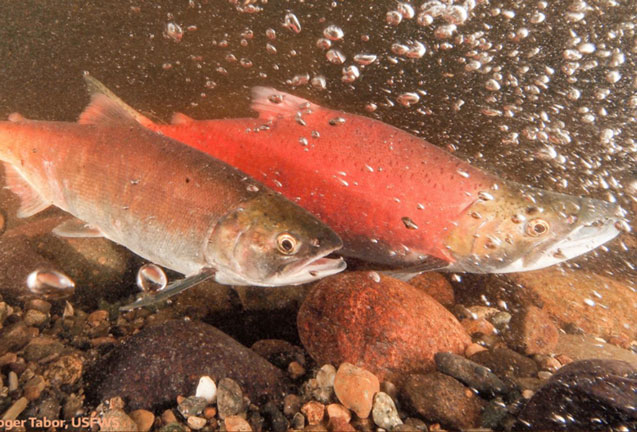About Little Red Fish Found: New Insights on the Mysterious Snerka Salmon

Kokanee salmon, also known as little red fish, once filled the tributaries of Lake Washington and the Sammamish River every fall. After a century of logging, coal mining, replumbing of Lake Washington, dredging of the Sammamish River, urbanization, and the introduction of dozens of non-native predators and competitors, the so-called "Middle Run Kokanee" of Lake Washington was generally thought to have been eliminated by the end of the 20th century. But were they?
Tantalizing clues of a remaining population of native kokanee emerge from time to time, but the native origins of the fish have been clouded by the introduction of millions of non-native kokanee and sockeye salmon. Because of their uncertain origins, small Oncorhynchus nerka (the scientific name for sockeye and kokanee) are sometimes called "snerka" or mystery nerka.
Could native kokanee in Lake Washington possibly have survived the past 120 years? Jeff Jensen reviews the complex history of kokanee in Lake Washington and will share up-to-date information on fate of the little red fish based on new understandings of genetics, life history, behavior, and migration in the basin. Jeff also highlights the role of citizen scientists and opportunities for collaboration on future restoration efforts within the Bothell community. Spoiler alert: the news is good!
Dr. Jeff Jensen grew up in Bothell and Kirkland with a deep appreciation for nature. He has a bachelor's degree in fisheries and zoology from the University of Washington, Seattle. While at UW, Jeff combined his interests in ichthyology and evolutionary biology and earned a Ph.D. in evolutionary biology from Harvard University. He spent summers researching in the San Juan Islands and was a faculty member in the biology department at University of Maryland, College Park. Jeff currently teaches at the School of Science, Technology, Engineering, and Mathematics at the University of Washington, Bothell.
